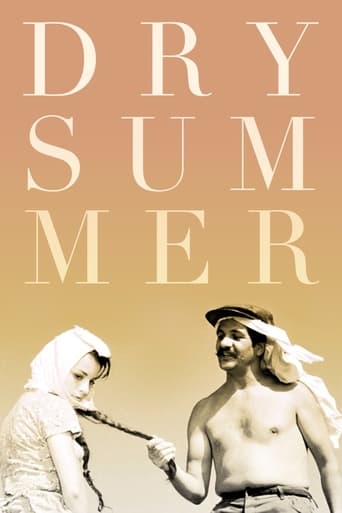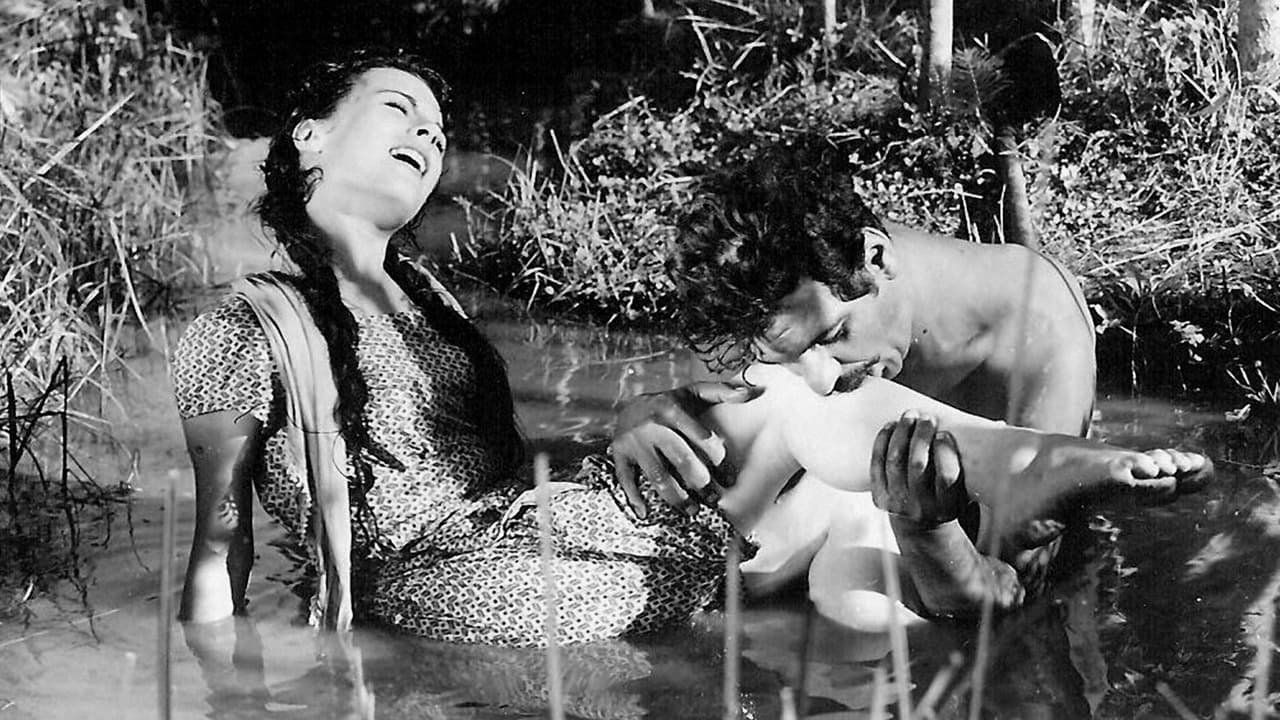rogeromaro
This is a tense, strong drama, although perhaps not for the squeamish. The photography is artistically done, on the other hand the looping is typical 60s; that is, artificial. Evocative use is made of the santur, a Turkish string instrument like a cimbalom. A completely different kind of music accompanies fights and scenes of violence. Then we switch to avant garde atonal riffs; here the instruments are Western. The camera is almost always close to the action, helping to create a sense of claustrophobia. The dialog is sparse; the director preferring to rely on meaningful glances. There are no snappy one-liners. Most of the film is easily understood without even looking at the subtitles. There are some particularly memorable, even disturbing images near the end. The title might be better translated as "Thirsty Summer," suggesting as it does the rapacity driving the main character.
fgfbach
before i watched, I had not expected such a gripping and fascinating film, i think its because we all (Turks) are used to watching funny village films with full of comedy where we burst into laugh even one kills another but this film shows us the dark side of village people with their great will to stay alive while trying to get the water (or any other) they need for their districts. usually village people (still, but especially in 1960s) are supposed to be uneducated and carrying gun with them in case there's an attack from other village people, in that case we should not be criticizing why the man does not agree to give water to all his neighbours, its very normal if we consider not everyone has the same brain cells, that is as normal as why there was world wars before. We cannot ask why for this film and for these times because simply there are no rules and the most brave with a gun in hand may grab all and dominate all. I have 2 things in mind, the musics are very interesting, because if there is no action you hear traditional Turkish tunes, with "saz" (a stringed Turkish instrument) but when there is action, you hear something like Bach with harpiscord, that is realllyyy interesting for me to hear this instrument in a Turkish Village film :)) the second thing is that was it necessary to kill those animals ? i think no, the director (metin erksan) could have made it possible easily if he wanted to. Anyway, its a must watch film, not only because it won the first golden bear from Turkey, but, also because probably it deserved. you might like the film very much or you might hate i don't know, but you will not get bored that's a guarantee... (try the new edited version in u-tube, its really great and as if it was shot 10 years ago)
Polaris_DiB
Make no mistake about it--in the foreseeable future, this story will be reenacted on the global scale. The War over Water is coming, probably in the next couple of generations.That said, the analogy may not exactly match in terms of how it proceed, partly because I fail to see why the younger brother actually listened to his elder after he (the elder) proved to be completely insane and power hungry and was obviously a lech from frame one. But perhaps the Turkish family operates so strictly in general, I have to admit I know little about their culture.In the meantime, be prepared for a descent into insanity as things go quickly, quickly awry--and the camera angles with it. There's some beautiful imagery and set-ups here that send the themes into way more effectiveness than the actual character motivations do.--PolarisDiB
Sadik1-Dost
I was born and raised in Turkey (Turkiye). I did watch the movie on Turkish TV more than 20 years ago. Sadly, it was only once. What I remember may not be enough for me to do justice to the movie. I may add that my knowledge of films that deal with similar themes is rather limited. I am in no position, for instance, to decide whether the theme was borrowed from a previous work, or whether it was dealt with here for the first time. What I do remember is that one of the most important moral issues that the movie dealt with was the question of whether or not water can be fairly dammed by a person (or people) upstream, if it is clear that such a dam would cause serious drought downstream. The villain (Erol Tas, a gentle person in real life, and arguably the best/most hated villain in Turkish cinema thus far) acts as if he has every right to cause such a drought. He even seems to enjoy himself taking a bath in the pool/artificial lake that he creates, while his neighbors go without water for their land and their daily use. Erol Tas's villainy is not limited only to this. However, it is interesting that this gem of a Turkish film also points out to the criminality of the Turkish Republic's construction of a series of dams that are sure to deprive Syria and Iraq of life-giving water. As far as I know, this film was the first Turkish film to receive a prestigious award and critical acclaim in Europe. It deserves to be remembered, re-watched, and made available on DVD.


 AD
AD
